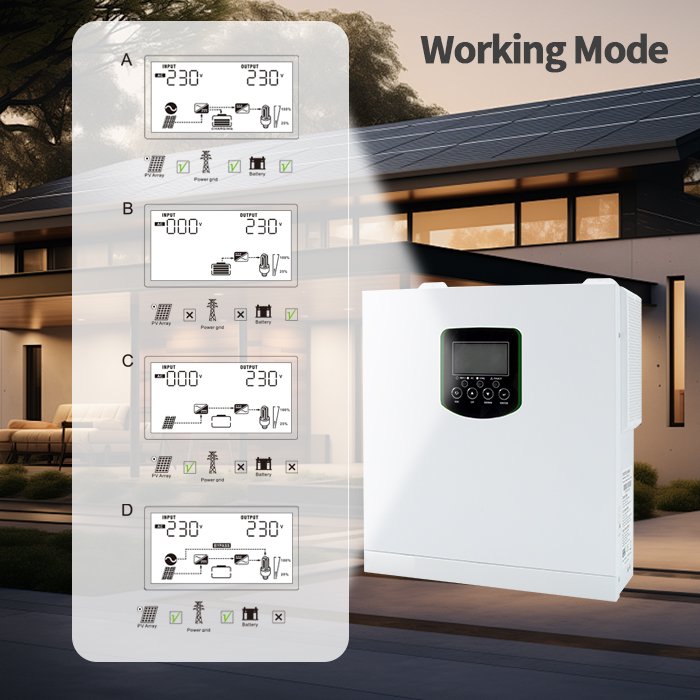What Is a Hybrid Solar Inverter?
As solar energy becomes more accessible and homeowners look for greater energy independence, hybrid solar inverters have emerged as a powerful solution. But what exactly is a hybrid solar inverter, and how does it differ from traditional inverters?
Understanding Hybrid Solar Inverters
A hybrid solar inverter combines the functions of a standard solar inverter and a battery inverter into a single device. It manages energy from three sources—solar panels, battery storage, and the grid—allowing for smart energy use and backup power.
Key Functions:
Power Conversion (DC ↔ AC): Converts DC electricity from solar panels into AC power for household use, and vice versa for battery charging from the grid.
Energy Management: Automatically prioritizes solar energy, stores excess in batteries, and draws from the grid only when necessary.
Monitoring and Optimization: Includes built-in monitoring systems and MPPT (Maximum Power Point Tracking) to ensure efficient energy generation and use.
Types of Hybrid Inverters
There are several types of hybrid inverters, each suited to different system designs:
Inverter–Charger Hybrid
Often used in off-grid setups, these inverters charge batteries from solar or grid power and supply AC power to loads.All-in-One Units
These combine a solar inverter, MPPT controller, and battery charger in one device. They save space but can be more vulnerable to failure—if one part breaks, the whole system may be affected.Grid-Tied Hybrid Inverters
Designed for systems connected to the grid, these inverters can export excess energy and are typically compatible with net metering programs. They also manage battery storage and can provide backup power during outages.
Advantages of Hybrid Inverters
Backup Power: When paired with a battery, hybrid inverters can provide electricity during grid outages—a key advantage over standard grid-tied systems.
Future Flexibility: They allow for seamless integration of battery storage, whether during the initial install or as an upgrade later.
Smart Energy Use: These inverters enable better control over how and when electricity is used, helping reduce reliance on the grid and lower energy costs.
Potential Drawbacks
Higher Initial Cost: Hybrid systems tend to be more expensive upfront due to their advanced capabilities.
Complexity in Retrofits: Adding a hybrid inverter to an existing solar system can require design changes. In some cases, AC-coupled battery systems may be more practical.
Battery Compatibility Limits: Some hybrid inverters only work with specific battery types or brands, which could limit upgrade options.
Is a Hybrid Inverter Right for You?
A hybrid inverter is an excellent choice if:
You want backup power during outages.
You plan to add battery storage now or in the future.
You're seeking energy independence and long-term savings.
However, if your goal is simply to reduce electricity bills and your grid is reliable, a traditional grid-tied inverter might be the better (and cheaper) choice.
Conclusion
Hybrid solar inverters offer flexibility, smart energy management, and future-readiness—all in one device. While they come at a higher cost, their ability to combine solar power, battery storage, and grid usage makes them an ideal option for homeowners looking to take full control of their energy use.



